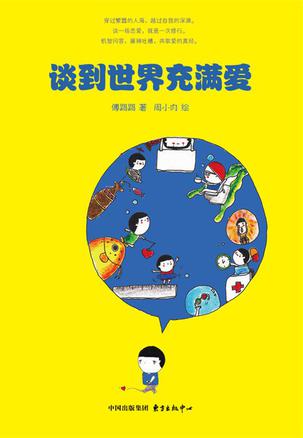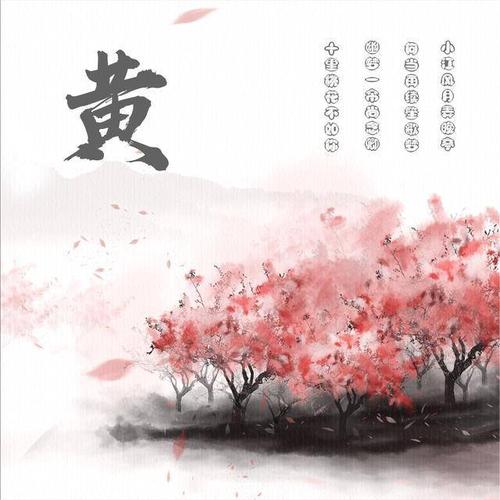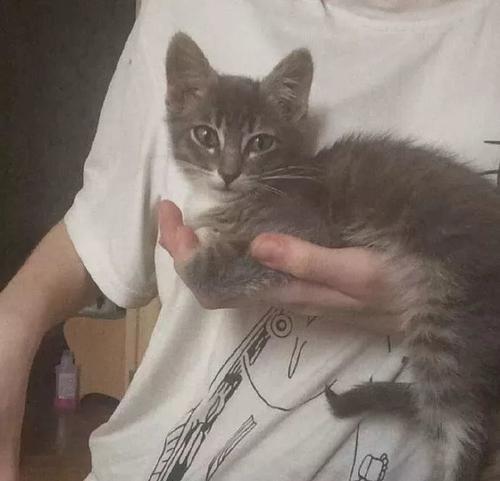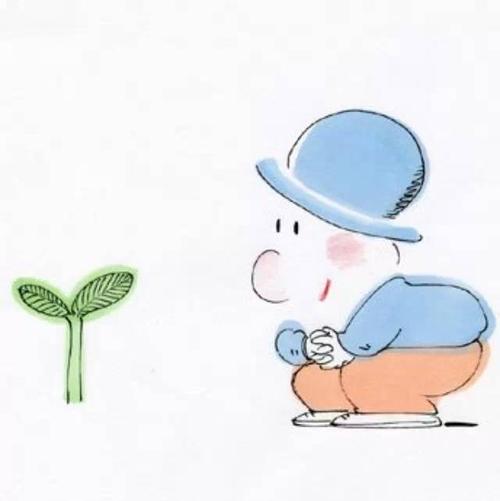 袭常
袭常「复习」外研版九年级下Revision M A标准录音教读单词+课文+听力训练
转载是一种动力 分享是一种美德单词朗读听力、课文动画学习▼▼▼九年级下Revision Mole A标准录音教读课文+听力训练外研九年级下Revision MA 1 听力训练04:43来自随身辅导快乐课堂请点击绿标播放
 白桦树
白桦树初一同学需要牢记的英语外研版知识汇总
外研版初一上册英语各单元重点单词,短语和句型,希望大家可以好好加以利用学习Mole 1 My classmates【重点单词】Chinese[,tai'ni:z]n.中文,汉语;中国人。adj.中国的,中国人的;中国话的from[强frm,弱frm]prep.来自,从…..来where[hwε]adv.在哪里year[ji]n.年;年龄about['baut]prep.关于;大约whatabout……?….怎么样?Ms[miz]n.女士America['merik]n.美国;美洲(包括北美和南美洲)not[nt]adv.不(用于否定句),不是,没有England['iɡlnd]n.英格兰;英国hi[hai]int.嗨!喂American['merikn]n.美国人,美洲人;adj.美国的,美国人的,美洲的our['au]pron.我们的grade[ɡreid]n.年级;等级he[hi:,hi]pron.他China['tan]n.中国everyone['evriwn]pron.每个人;大家capital['kpitl]n.首都,省会but[bt]conj.但是;然而very['veri]adv.非常,很big[biɡ]adj.大的;重要的city['siti]n.城市,都市small[sm:l]adj.少的,小的first[f:st]adj.第一的;首要的;adv.先;首先;firstname名字last[lɑ:st]adj.最后的;最末的。adv.最后;最末lastname姓all[:l]pron.全体,每个【重点短语】1. come from 来自be from 来自2. Nice to meet you./It's nice to meet you./Good to see you.很高兴见到你3. welcome sb to somewhere 欢迎某人来到某地4. Class One Grade Seven 七年级一班5. the capital of …...的首都/省会6. family name 姓given name 名last name 姓first name 名【重点句型】1. I'm Chinese, and I'm from China. = I'm Chinese, and I come from China.) 我是中国人, 我来自中国.2. ---Where are they from? =Where do they come from? 他们来自什么哪里?---They are from America.=They come from America.) 他们来自美国.3. ---How old is that man? 那位男子多少岁了?---He is forty-four. 他44岁.4. The students are in Class Five, Grade Seven. 这些学生在七年级五班.5. Tom is in Class One with Lingling.=Tom with Lingling is in Class One.=Tom and Lingling are in Class One. 汤姆和玲玲在一班.6. What about you?=How about you?=And you? 你呢?/你怎么样?7. Welcome to Class 6 Grade 7! 欢迎来到七年级六班。8. Beijing is the capital of China. 北京是中国的首都。9. Good to see you.=Nice to see you.=Glad to see you. 很高兴见到你。10. I'm Tony Smith. Tony is my first name and Smith is my last name. 我是Tony Smith,Tony是我的名,Smith是我的姓。Mole 2 My family【重点单词】aunt[ɑ:nt]n.阿姨;姑妈;伯母;舅妈brother['br]n.兄弟cousin['kzn]n.堂兄弟姊妹;表兄弟姊妹daughter['d:t]n.女儿family['fmili]n.家庭;家族father['fɑ:]n.父亲,爸爸grandfather['ɡrnd,fɑ:]n.(外)祖父grandmother['ɡrnd,m]n.(外)祖母grandparent['ɡrnd,pεrnt]n.(外)祖父母mother['m]n.母亲,妈妈parent['pεrnt]n.父亲(或母亲);父母亲sister['sist]n.姐妹;修女;护士son[sn]n.儿子;孩子uncle['kl]n.叔叔;伯父;伯伯;舅父;姨丈;姑父photo['futu]n.照片,相片photograph['futɡrɑ:f]n.照片,相片these[i:z]pron.这些they[ei]pron.他们;它们;她们mum[mm]n.妈妈(口语);left[left]n.左边;左侧。adj.左边的;左侧的ontheleft在左边,在左侧dad[dd]n.爸爸;爹爹right[rait]n.正确;右边;右侧。adj.正确的;右边的;右方的ontheright在右边,在右侧who[hu:]pron.谁woman['wumn]n.妇女;女性;成年女子women['wimin]n.女人(woman的复数)next[nekst]adj.紧挨着,紧靠着;adv.紧接下来地,下一步nextto在……旁边,紧挨着。husband['hzbnd]n.丈夫front[frnt]n.前面;正面infrontof在···的前面those[uz]pron.那些(that的复数)bus[bs]n.公共汽车station['stein]n.站;车站hospital['hspitl]n.医院hotel[hu'tel]n.旅馆,饭店police[p'li:s]n.警察,警方theatre(AmEtheater)['θit]n.电影院,剧院;actor['kt]n.男演员driver[draiv]n.驾驶员;司机manager['mnid]n.经理nurse[n:s]n.护士policeman[p'li:smn]n.男警察policemen[p'li:smn]n.男警察(policeman的复数形式)we[wi:]pron.我们(主格);an[n,n]art.一(个,件···)(在元音字母前)job[db]n.工作;职业at[t,t]prep.在···,在···里。same[seim]adj.相同的;同一的;doctor[dkt]n.医生;博士farm[fɑ:m]n.农场;农家worker['w:k]n.工人;劳动者man[mn]n.人;男人men['men]n.男人,人类(man的复数)shop[p]n.商店;店铺its[its]pron.它的their[ε]pron.他们的,她们的;它们的【重点短语】1.>2.>3. next to 在...…隔壁;挨着4. in front of 在...…前面(范围外)in the front of 在...…前面(范围内)5. behind 在...…后面6. at the same hospital 在同一家医院7. What a big family! 好大的家庭啊!8. What's your father's job?= What does your father do? 你父亲的职业是什么?9. a photo of sb. 某人的照片10. a hotel manager/a manager of a hotel 宾馆经理a theatre manager / a manager of a theatre 剧院经理11. at a police station 在警察局12. a bus station 公共汽车站13. a farm worker 一位农场工人14. family doctor 家庭医生15. an apple tree 变为复数形式 apple treesa man doctor 变为复数形式 men doctorsa woman teacher 变为复数形式 women teachers16. I see.=I know./I understand. 我明白了,我懂了。17. an English teacher 一位英语老师18. 指示代词近处:this(这个,单数)→these(这些,复数)较远处:that(那个,单数)→those(那些,复数)【重点句型】1. This is a photo of Tony' s family. 这是Tony的一张全家福。2. What a big family! 多么大的一个家庭啊!3. My mum's parents are>我母亲的父母在右边。4. The woman next to me is my dad's sister. 紧挨着我的这位女子是我父亲的妹妹。5. Is this your family? 这是你的家庭吗?6. Are these your grandparents? 这些是你的祖父母吗?7. My mother is the manager of a theater. 我的母亲是剧院负责人。8. My father's job is at a police station. 我父亲在警察局工作。9. His parents are shop workers. 他的父母是商店工作人员。Mole 3 My school【重点单词】Computer[km'pjut]n.计算机;电脑furniture['f:nit]n.家具(总称);map[mp]n.地图picture['pikt]n.照片,图片television['teli,vin]=TVn.电视,电视机wall[w:l]n.墙壁,围墙thirty['θ:ti]num.三十forty['f:ti]num.四十forty复数fortiesfifty['fifti]num.五十sixty['siksti]num.六十seventy['sevnti]num.七十eighty['eiti]num.八十ninety['nainti]num.九十really['rili]adv.非常,很;真正地many['meni]adj.许多的,很多howmany多少there[e]pron.(用于引导句子的主语)lot[lt]n.大量,许多alotof大量;许多oh[u]int.哦;哎呀(表示惊讶或恐惧等)any['eni]adj.任何的,一些;pron.任何;任何一个world[w:ld]n.世界tree[tri:]n.树;树木building['bildi]n.建筑;建筑物hall[h:l]n.大厅;会堂dininghall饭厅,饭堂gate[ɡeit]n.大门;出入口library['laibrri]n.图书馆,藏书室office['fis]n.办公室;政府机关playground['pleiɡraund]n.运动场,操场science['sains]n.科学;科学课lab[lb]n.[口]实验室,研究室laboratory[l'brtri]n.实验室behind[bi'haind]prep.在···后面;between[bi'twi:n]prep.在…之间middle['midl]n.中间,中央near[ni]prep.靠近;接近with[wi]prep.和;具有(品质,特征);和…在一起for[f:,f]prep.为,为了room[ru:m]n.房间;室,屋子【重点短语】1.there be 有,表存在2. a lot of = lots of 许多 (后跟可数名词复数及不可数名词)3. at/in the front of 在...…内部的前面4. a map of the world 世界地图a map of China 中国地图a map of England 英国地图5. how many 多少(后跟可数名词复数)6. between...and... 在......与......之间(在两者之间)7. in the middle of 在......中央8. a building with twenty-four classrooms 一幢有24间教室的建筑物a house with a garden 一所有花园的房子9. dining hall 食堂10. sports hall 体育馆11. science lab 科学实验室12. classroom building 教学楼13. office building 办公楼【重点句型】1. ---What's your classroom like? 你们的教室看上去怎么样?---It's really big. 真的很大。2. ---How many students are there in your class? 你们班有多少学生?---There are forty-four students in my class. 我们班有四十四个学生。3. There aren't any computers in our classroom. 我们教室没有电脑。4. ---Are there any computers>每位学生的课桌上有电脑吗?---Yes, there are some. ( No, there aren't any.) 是的,有一些。5. ---What's in your classroom? 你们教室里有什么?---There is a lot of furniture. 有很多教学设施。6. There is a map and some pictures>7. In the middle of the school is a big playground.=A big playground is in the middle of the school. 一个大操场在学校的中央。8. ---Where is the library? 图书馆在哪里?---It's next to the science lab. 它挨着实验室。9. Gao Yan's between Zhao feng and Li Min. 高燕在赵峰和李民中间。Mole 4 Healthy food【重点单词】food[fu:d]n.食物;食品drink[drik]n.饮料;vt.喝candy['kndi]n.糖果(等于sweets);fruit[fru:t]n.水果;产物meat[mi:t]n.肉,肉类(食用)vegetable['veditbl]n.蔬菜apple['pl]n.苹果bean[bi:n]n.豆beef[bi:f]n.牛肉carrot['krt]n.胡萝卜chicken['tikin]n.鸡肉;小鸡chocolate['tklit]n.巧克力coffee['kfi]n.咖啡;咖啡豆;cola['kul]n.可乐juice[:s]n.(水果)汁,果汁milk[milk]n.牛奶potato[p'teitu]n.土豆,马铃薯tea[ti:]n.茶叶;茶树tomato[t'mɑ:tu]n.番茄,西红柿water['w:t]n.水shop[p]vi.购物;买东西goshoping去买东西,去购物have[hv,hv]aux.助动词。vt.有,吃,喝get[ɡet]vt.得到;获得havegot有;拥有some[sm]adj.一些;若干;少量。pron.一些;某些much[mt]adj.大量的,许多。toomuch太多kind[kaind]n.种类;lotsof许多,大量so['su]conj.所以;因此Howabout···?(征求意见)···好吗?···行吗?has[hz,弱hz]vt.有;吃(have的第三人称单数现在式);bad[bd]adj.坏的;不好的healthy['helθi]adj.健康的delicious[di'lis]adj.美味的bread[bred]n.面包;fish[fi]n.鱼,鱼类hamburger['hmb:ɡ]n.汉堡包,汉堡icecream[,ais'kri:m]冰淇淋noodle['nu:dl]n.面条;[俚]笨蛋rice[rais]n.稻;米饭sugar['uɡ]n.糖;食糖eat[i:t]v.吃child[taild]n.(14岁以下的)儿童,孩子children['tildrn]n.孩子们(child的复数)begoodfor对···有帮助的sweet[[swi:t]]adj.甜的bebadfor对···有害的right[rait]adj.正确的,对的egg[eɡ]n.蛋;鸡蛋eye[ai]n.眼睛;视力cheese[ti:z]n.奶酪;干酪tooth[tu:θ]n.牙齿teeth[ti:θ]n.牙齿的复数bit[bit]n.一点,少许abit稍微,有点儿face[feis]n.脸;表面tired['taid]adj.劳累的soup[su:p]n.汤,羹important[im'p:tnt]adj.重要的,重大的remember[ri'memb]vi.记住,记起well[wel]adv.很好地stay[stei]v.停留;保持fat[ft]adj.肥的,胖的getfat发胖or[:]conj.或,或者breakfast['brekfst]n.早餐,早饭every['evri]adj.每一的,每个的lunch[lnt]n.午餐home[hum]n.家;家庭dinner['din]n.晚餐,正餐banana[b'nɑ:n]n.香蕉buy[]v.买【重点短语】1. have/has got 有2. Let's + 动词原形 让我们......3. too much 太多(后跟不可数名词)too much chocolate 太多巧克力4. be good for 对......有益5. What kind of+名词(可数或不可数即可)提问种类What kind of fruit have we got? 我们有哪种水果?6. How about/What about doing sth. ......怎么样?7. be bad for 对......有害8. a bit 有点,一点 (后跟形容词及不可数名词)a bit tired 有点累a bit juice 一点果汁9. It's important (for sb) to do sth.(对于某人来说)做某事很重要.10. stay healthy/ keep healthy/ keep fit 保持健康11. get fat 变胖12. have a good breakfast 吃一顿丰富的早餐13. healthy food 健康的食物unhealthy food不健康的食物14. eat well 吃得好eat right food 吃正确的食物15. remember to do 记得做某事(未做)16. drink delicious chicken soup 喝美味鸡汤【重点句型】1. We've got lots of apples. 我们有大量的苹果。2. He hasn't got any meat. 他没有一些肉。3. ---Have you got any chocolate? 你们有一些巧克力吗?---Yes, we have. / No, we haven't. 是的,我们有。/不,我们没有。4. Let's go shopping for food and drink. 让我们去买一些食品饮料吧。5. Let's get some coffee for your mum. 让我们给你妈妈买点咖啡吧。6. Too much chocolate isn't good for you. 太多的巧克力对你不好。7. What kind of fruit? 什么种类的水果?8. Cola is bad for you. 可乐对你有害。9. ---How about some orange juice? 一些橘汁怎么样?---Good idea. 好主意。10. Is your food and drink healthy? 你的饮食健康吗?11. It is important to stay healthy. 保持健康很重要。12. There are lots of fruit and vegetables for lunch, but there isn't any cola or candy . 中午有许多水果蔬菜,但没有可乐和糖果。13. Please remember to buy some fruit. 请记住买一些水果。Mole 5 My school day【重点单词】half[hɑ:f]n.一半past[pɑ:st]prep.过(几点);晚于o`clock[`klk]adv.···点钟to[tu:,tu,辅音前弱t]prep.到;(距整点时间)差···art[ɑ:t]n.艺术;美术geography[di'ɡrfi]n.地理;地形history['histri]n.历史,历史学IT[.ati]n.信息技术maths[mθs]n.数学(等于mathematics)PE[.pi`I:]n.体育;体育课PE=physicalecation['fizikl,edju:'kein]n.体育;体育课lesson['lesn]n.(一节)课then[en]adv.然后;接着like[laik]vt.喜欢;喜爱difficult['difiklt]adj.困难的;难懂的love[lv]n.喜爱;关爱。vt.喜欢;热爱subject['sbdikt]n.主题;科目because[bi'kz]conj.因为interesting[intrsti]adj.有趣的talk[t:k]vt.说话;谈论begin[bi`gin]vt.开始when[hwen]adv.什么时候,何时gotoschool上学weekday['wi:kdei]n.平日,工作日getup起床havebreakfast吃早餐house[haus]n.房子、住宅start[stɑ:t]vt.开始;启动work[w:k]n.工作,学习;v.工作,学习break[breik]n.(课间)休息,havelunch吃午餐gohome回家evening['i:vni]n.晚上;傍晚watch[wt]vi.观看,看。havedinner吃饭,吃晚餐do[:]vt.做;干homework['humw:k]n.家庭作业,课外作业bed[bed]n.床;gotobed去睡觉sleep[sli:p]vi.睡觉。n.睡觉gotosleep开始睡觉,入睡park[pɑ:k]n.公园;停车场busy['bizi]adj.忙碌的;繁忙的wash[w]vt.洗涤;洗minute['minit]n.分,分钟【重点短语】1. half past seven 七点半2. five to nine 八点五十五分3. in the afternoon/morning/evening 在下午/上午/晚上(但当afternoon/morning/evening之前有具体日子修饰时,介词要用on. 如:on Monday afternoon 在星期一下午)4. be good at doing = do well in doing 擅长做某事5. favorite subject 最喜爱的科目6. talk with sb= talk to sb. 与某人谈话7.>8. get up 起床9. have breakfast/have lunch/have dinner 吃早餐/ 午餐/晚餐10. start to do = begin to do 开始做11. watch TV 看电视12. do>13. go to bed 去睡觉14. go to sleep 去睡觉15. have a break/have a rest 休息片刻16. have classes/lessons 上课17. have+具体科目名称 上......课have geography上地理课18. like to do…/like doing… 喜欢做某事19.in the day 在白天at night 在夜里20. play with sb 和某人玩21. make sth + adj.(形容词) 使某物......She makes maths interesting. 她使数学有趣。22. finish school 放学(动词短语)after school放学(介词短语)23. my school day 我的校园生活24. start work 开始工作【重点句型】1. What's the time?=What time is it? 什么时间了?It's twenty past>一点二十。2. What are our lessons>星期一我们上什么课?3. We have Chinese at 8:00 and science at 8:55. 8:00上语文课,8:55上科技课。4. It's interesting to study maths. 学数学有趣。5. I like the lessons>我喜欢星期二下午的课。6. They don't have geography>他们在星期五不上地理课。7. Do you have PE>你们在星期四下午上体育课吗?8. I love history and I'm good at it. 我喜欢历史,我擅长历史。9. My favourite subject is English. 我最喜欢的课程是英语。10. I can talk with my Chinese friends. 我能和我的中国朋友谈话。11. Maths is difficult for Betty.=It's difficult for Betty to study maths. 对于Betty来说,学习数学难。12. ---What time is your art lesson? 你的美术课在什么时候?---I have art at 3:00 pm>我在星期三下午3:00上美术课。13. We start work at nine o'clock. 我们在九点钟开始上课。14. My school is next to my home. 学校紧挨着我的家。15. We have a break for thirty minutes. 我们休息30分钟。16. We have lunch in the dining hall at 12:20. 12:20我们在食堂吃午饭。17. I have a busy day>星期六我度过了繁忙的一天。18. The students have eight lessons every day. 这些学生每天上八节课。19. Mr.Li makes maths lessons interesting. 李老师使数学课有趣。20. I do my maths homework first after school. 放学后我首先做我的数学作业。Mole 6 A trip to the zoo【重点单词】bear[be]n.熊elephant['elifnt]n.象giraffe[di'rɑ:f]n.长颈鹿lion['lain]n.狮子monkey['mki]n.猴子panda['pnd]n.熊猫tiger['taiɡ]n.老虎zebra['zi:br]n.斑马zoo[zu:]n.动物园guide[ɡaid]n.导游animal['niml]n.动物such[st]adj.这样的,如此的as[z]prep.如同,像…一样suchas比如come[km]vi.来comefrom来自different['difrnt]adj.不同的country['kntri]n.国家;故乡other[']adj.其他的dangerous['deindrs]adj.危险的ugh[ɡ]int.啊,哎呀also[':lsu]adv.也;而且plant[plɑ:nt,plnt]n.植物look[luk]vt.看,瞧lookat看tall[t:l]adj.高的leaf[li:f]n.叶子sure[u]adv.当然;的确bamboo[bm'bu:]n.竹cute[kju:t]adj.可爱的shall[l,l]aux.···好吗?要不要···?them[em,m]pron.他们;它们;她们which[hwit]pron.哪/那一个over['uv]prep.越过;在…上方there[ε]adv.在那里;往哪里overthere在那边,在那里funny['fni]adj.有趣的call[k:l]vi.把···叫做;称呼···为Africa['frik]n.非洲Asia['ei]n.亚洲Europe['jurp]n.欧洲little['litl]adj.极少的alittle少量only['unli]adv.只,仅仅about['baut]adv.大约大致kilo['ki:lu]n.千克;公斤kilo=kilogram['kiluɡrm]n.公斤;千克people['pi:pl]n.人;人们allovertheworld全世界African['frikn]adj.非洲的,非洲人的。n.非洲人aswellas并且,还grass[ɡrɑ:s]n.草large[lɑ:d]adj.大的;巨大的usually['ju:uli]adv.通常,经常alone['lun]adv.独自地begoodat擅长strong[str]adj.强大的;强壮的;强烈的catch[kt]v.抓住;抓住manykindsof许多种类even['i:vn]adv.甚至【重点短语】1. Welcome to Beijing Zoo. 欢迎来到北京动物园。2. such as = like 例如3. There she is! 她在那里!4. a panda called Lingling 一只叫玲玲的熊猫5. be called 被称为/叫做......6. in Europe/Africa/Asia 在欧洲/非洲/亚洲7. eat grass 吃草(grass不可数)8. as well as 并且, 还,和9. all over the world 全世界10. live alone 独居11. 30 kilos of bamboo 30公斤竹子12. in fact 事实上13. many kinds of 许多种类14. go and see… 去看看......15. many different countries 许多不同的国家16. a black and white animal 一只黑白相间的动物17. Let's+动词原形 让我们......19. over there 在那边20. live in+地点 居住在某地21. a little fruit 一点水果22. That's very funny! 真好玩!23. African animals 非洲动物Australian animals 澳洲动物24. be good at doing 擅长于做某事25. catch many kinds of animals for food 捕食许多种类的动物(以许多种类的动物为食)26. 两种表达类别的方式:the+动物名单数动物名复数Eg:表示猴子一类:用the monkey或 monkeys表示【重点句型】1. Welcome to Beijing Zoo. 欢迎来到北京动物园。2. The zoo has many kinds of animals in the zoo.=There are kinds of animals in the zoo. 动物园里有许多种类的动物。3. The animals come from different countries and eat different food. 这些动物来自不同的国家,吃不同的食物。4. They also like plants. 他们也吃植物。5. ---Do pandas eat plants and leaves? 熊猫吃植物和叶子吗?---Sure. They love bamboo. 当然。它们喜爱竹子。6. ---Shall we go and see pandas? 我们去看熊猫好吗?---Yes. Let's go. 好的。我们走吧。7. Which is Lingling the panda ? 哪一只是熊猫玲玲?8. There is a panda called Lingling. 有一只叫玲玲的熊猫。9. A panda doesn't eat meat. 熊猫不吃肉。10. The tiger lives in Asia.=The tiger comes from Asia. 老虎生活在亚洲。11. A panda eats about 30 kilos of bamboo a day. 一只熊猫每天吃30斤竹子。Mole 7 Computers【重点单词】keyboard['ki:b:d]n.键盘mouse[maus]n.鼠标;老鼠mice[mais]n.老鼠(mouse的复数)screen[skri:n]n.屏幕connect[k'nekt]vt.连接turn[tз:n]vt.转动turn>learn[l:n]vt.学习;学document['dkjumnt]n.文件click[klik]vt.点击use[ju:z]vi.使用save[seiv]vt.储存;保存;box[bks]n.(计算机屏幕上的)框,盒子finally['fainli]adv.最后print[print]vt.印刷;打印paper['peip]n.纸;论文share[ε]vi.共享;分享Australia['streilj]n.澳大利亚,澳洲company['kmp()ni]n.公司;剧团often['f()n]adv.经常customer['kstm]n.顾客internet['intnet]n.因特网check[tek]vt.检查;查看train[trein]n.火车travel['trvl]n.旅行plan[pln]n.计划。vi.计划;打算ticket['tikit]n.票music['mju:zik]n.音乐,乐曲movie['mu:vi]n.电影night[nait]n.夜晚search[s:t]vt.搜索;搜寻;查找searchfor搜寻;查找information[,inf'mein]n.信息email['i:meil]n.电子邮件send[send]vt.发送game[ɡeim]n.游戏sometime['smtaim]adv.有时候;不时cinema['sinm]n.电影;电影院clothes[kluz]n.衣服(总称)visit['vizit]vt.探望;参观holiday['hldi]n.假日;节日【重点短语】1. connect the screen to the computer 把显示器连接到主机2. turn>turn off/ switch off 关闭;切断电源3. open a new document 打开新文档4. use the keyboard 用键盘5. first,next,then, finally 首先,接下来,然后,最后6. of course 当然7. share a computer 共用一台电脑8. go>9. check the times of trains 核对列车时刻表10. make travel plans 制定旅行计划11. listen to music 听音乐12. watch movies 看电影13. play computer games 玩电脑游戏14. search for information 搜索信息15. check my email 查收邮件16. send emails 发送邮件17. go shopping>18.share sth with sb 与某人分享某物19. visit the websites 浏览网站20. want to do sth. 想要做某事21. put… in… 把......放进......里22. print the document 打印文件23. work for 为......工作/效力24. every Friday night 每周五晚上【重点句型】1. How do I do my homework>我怎样在电脑上做家庭作业?2. What's next? 接下来是什么?3. Please connect the screen to the computer. 请把显示器连接到主机。4. Finally, turn>最后,打开电脑。5. I want to learn how to print a document. 我想学习怎样打印文件。6. My father often talks to his customers>我父亲经常在电脑上和他的客户洽谈。7. I also go>我也上网查看我的电子邮件。8. I listen to music or watch movies>每星期五晚上我在电脑上听音乐或看电影。9. There is no computer in my home. 在我家里没有电脑。10. I play a lot of games and my mother doesn't like it. 我玩大量游戏,我母亲就会不高兴。Mole 8 Choosing presents【重点单词】card[kɑ:d]n.卡片party['pɑ:ti]n.晚会;聚会present['preznt]n.礼物would[wud]aux.肯,会;愿意。v.will的过去式always[':lweiz]adv.一直;总是great[ɡreit]adj.巨大的;太好了;超乎寻常的cake[keik]n.蛋糕never['nev]adv.从不special['spel]adj.特别的;特殊的cut[kt]vt.切;剪give[ɡiv]vt.给;送sing[si]vt.唱;唱歌happy['hpi]adj.幸福的;高兴的secret['si:krit]n.秘密haha[hɑ'hɑ]哈哈(表笑声)CD[,si:'di:]abbr.光盘,激光唱片concert[kn'st]n.音乐会magazine[,mɡ'zi:n]n.杂志scarf[skɑ:f]n.围巾silk[silk]n.丝绸dress[dres]n.连衣裙;礼服T-shirt['ti,t]n.T恤衫choose[tu:z]vi.选择,挑选exercise['ekssaiz]n.锻炼;练习wear[wε]v.穿;戴expensive[ik'spensiv]adj.昂贵的shoe[u:]n.鞋,鞋子spend[spend]vi.花钱;花费money['mni]n.钱;金钱film[film]n.电影song[s]n.歌曲match[mt]n.比赛,竞赛weekend[,wi:k'end]n.周末atweekends在周末dear[di]adj.亲爱的(用于信开头某人的名字前)hear[hi]vi.听见hearfrom收到···的来信afraid['freid]adj.害怕的;担心的I'mafraid[口]恐怕(用于礼貌地拒绝)can`t=cannot不能【重点短语】1. would like to do= want to do 想要做某事2. I'd love/like to.=With pleasure! 是的,我想。3. get birthday presents 收到生日礼物4. have a birthday party 举行生日聚会5. get/take some exercise 做锻炼(=do sports)6. watch football =watch a football match 看足球比赛7. go to concerts 去听音乐会8. go to the cinema 去看电影9.>10. at weekends 在周末11. a box of chocolates 一盒巧克力12. sb. spends time/money>sb. spends time/money in doing sth. 某人花费时间/金钱做某事。It takes sb. some time to do sth. 做某事花费某人多长时间13. watch/see/notice/hear sb do sth. 看到某人做了某事watch/see/notice/hear sb doing sth. 看到某人正在做某事14. hear from sb 收到某人来信15. I'm afraid I cannot. 恐怕我不能。(礼貌的拒绝)16. 11 silk scarfs(scarves) 11条丝绸围巾17. What would you like for your birthday party? 你生日聚会时想要什么?18. stay at home 呆在家里19. go to a taijiquan class上太极拳课20. Teachers' Day 教师节Children's Day 儿童节【重点句型】1. ---Would you like to come to my birthday party? 你愿意来参加我的生日派对吗?---Yes, I'd love to. / I'd love to, but... 是的,我愿意。/ 我很愿意,但是......2. My mother never makes a birthday cake for me. 我母亲从不给我制作生日蛋糕。3. Do you sing it in Chinese or in English? 你用中文还是英文唱这首歌呢?4. What would you like for your birthday? 关于你的生日,你想要什么呢?5. It's a secret. 这是秘密。6. What do you often do>在教师节你常做什么?7. She spends lots of money>她在衣服上花费了大量的钱。8. We usually watch football>在周末我们常在电视里看足球赛。9. Which presents do you choose for your friends? 你为你的朋友选择哪些礼物呢?10. It's great to hear from you. 收到你的来信真是太好了。11. I'm afraid I can't come. 恐怕我不能来。12. I always watch my sister play football. 我一直都在观看我的妹妹踢足球。Mole 9 People and places【重点单词】postcard['pustka:d]n.明信片call[k:l]vi.呼叫;给··打电话lie[lai]vi.躺,平躺sun[sn]n.太阳line[lain]n.行,排,列take[teik]vt.拿,取,花费(时间)takephotos拍照wait[weit]vt.等候;等待waitfor等待;等候walk[w:k]vi.行走,步行trip[trip]n.旅行few[fju:]adj.很少的;一些;几个afew一些;几个sale[seil]n.卖;出售onsale正在出售enjoy[in'di]vt.喜爱,享受··的乐趣anyway['eniwei]adv.无论如何;尽管如此back[bk]adv.回到;向后;返回goback回去drive[draiv]v.驾驶;驾车off[f]prep.离开;下(飞机、火车、汽车等)getoff下(飞机、火车、公共汽车等)hotdog热狗(一种中间加香肠的三明治)leave[li:v]vi.离开restaurant['restr]n.餐馆;饭店moment['mumnt]n.(某事发生的)时刻、时候place[pleis]n.地点thing[θi]n.事情;东西most[must]adj.大部分的,多数的still[stil]adv.仍然;依旧star[stɑ:]n.星;明星;星状物run[rn]vi.跑;奔跑study['stdi]vt.学习;研究【重点短语】1. enjoy doing sth. 喜爱做某事2. enjoy>3. a lot = very much 非常,很Thanks a lot. 非常感谢。4. be>be>5. right now 现在6. take lots of photos 拍许多照片7.>8. lie in the sun 躺在太阳下9. a few 一些 (后跟可数名词复数)a little 一些(后跟不可数名词)10. send by email 通过邮件方式发送11. It's time to do sth. = It's time for sth. 是时候做某事了。12. go back home/go back to school 回家/回学校13. wait for 等候14. get>15. at this/the moment 此刻16. leave work 下班at work 上班go home from work 下班回家leave A for B 离开A地去B地17. have a drink 喝一杯(指喝酒)18. most of them 他们中的大多数19. drive to sp 开车去某地drive home 开车回家20. the others(=the other people)其他人21. buy some presents = shop for presents 买礼物22. in different places 在不同的地方23. do different things 做不同的事情24. thanks for doing sth. 感谢做某事25. movie star 电影明星26. write to sb 给某人写信27. enjoy the sun 享受阳光【重点句型】1. We're enjoying the school trip a lot. 我们非常喜欢学校的这次旅游。2. I'm standing>我正站在长城上和你打电话。3. We're>我们正参加学校到长城的旅游。4. Are they with you? 他们和你在一起吗?5. They are>它们在商店里出售。6. Please take some photos and send them to me by email. 请照一些像,并用电子邮件发送给我。7. It's time to go back to school now. 回学校的时间了。8. At this moment, in different places of the world, people are doing different things. 此刻,在世界上不同的地方,人们正在做不同的事。9. Hi fromTony. 来自Tony的问候。10. Thank you for your postcard. 谢谢你的明信片。Thank you for sending me a postcard. 谢谢你送明信片给我。11. We are having a good time. 我们正玩的高兴。Mole 10 Spring Festival【重点单词】lantern['lntn]n.灯笼;dragon['drɡn]n.龙dance[dɑ:ns]n.舞蹈;vi.跳舞clean[kli:n]vi.打扫;adj.清洁的,干净的sweep[swi:p]vi.清扫,打扫;floor[fl:]n.地板cook[kuk]vt.烹调,煮,烧speak[spi:k]vi.说话;讲话happen['hpn]vi.发生ready['redi]adj.有准备好;准备好的getreadyfor为···做好准备festival['festvl]n.节日quite[kwait]adv.十分;相当atthemoment此刻,目前beautiful['bju:tiful]adj.美丽的;漂亮的atwork在工作away['wei]adv.在安全的地方;在通常存放的地方、putaway收起;收拾好hard[hɑ:d]adv.努力地adj.艰难的;困难的join[din]vt.参加;加入hurry['hri,'h:ri]vi.匆忙,赶快hurryup赶快Christmas['krisms]n.圣诞节January['dnjuri]n.一月February['februri]n.二月before[bi'f:]prep.在…之前sweepaway扫去luck[lk]n.运气table['teibl]n.桌子celebrate['selibreit]vt.庆祝traditional[tr'dinl]adj.传统的mpling['dmpli]n.饺子,汤团programme(AmEprogram)['pruɡrm]n.(电视)节目sweater['swet]n.毛线衣,厚运动衫coat[kut]n.外套mean[mi:n]vt.意味着;意思是lucky['lki]adj.幸运的merry['meri]adj.愉快的;高兴地MerryChristmas圣诞快乐tell[tel]vt.告诉;讲【重点短语】1. clean the house 打扫房子do the/some cleaning 打扫2. This is Tony speaking.(电话用语)我是Tony。3. sweep the floor 扫地4. make lanterns 做灯笼5. learn a dragon dance with sb 跟某人学舞龙6. at work 正在工作7. cook the meal= do the/some cooking 做饭8. What's happening? 发生了什么事?9. get ready for 为......做准备10. at the moment 目前11. put things away 收拾东西12. so hard 如此勤奋13. join in the basketball team 加入篮球队14. hurry up 快点15. quite busy 很忙16. quite a+形容词+名词quite a beautiful girl 一个相当漂亮的女孩quite a busy day 相当繁忙的一天17. sweep away bad luck 扫走霉运18. have a look at=look at… 看……19. so much 这么多(后接不可数名词)so much meat 这么多肉20. so many 这么许多(后接可数名词复数)so many students 这么多学生21. It means 意味着……What does it mean? 它有什么含义?22. the most important festival 最重要的节日23.>24. hurry to sp 匆忙赶到某地25. help sb (to)do sth/help sb with sth 帮助某人做某事26. learn to do 学做某事27.>28. celebrate…with a traditional family dinner 以一个传统的家庭晚餐来庆贺……29. in+月/年in February/January 在二月份/一月份in 1997 在1997年30. watch a special programme 观看一个特别的节目31. lucky mony 压岁钱32. say hello/hi to sb 向某人问好33. say goodbye to sb 向某人道别34. say sorry to sb 向某人致歉35. be busy doing 忙于做某事36.>37. tell me about sth 告诉我......事38. tell stories 讲故事39. tell sb to do sth 告诉某人做某事tell sb not to do sth 告诉某人不要做某事【重点句型】1. Hi, Lingling. This is Tony speaking. 您好,玲玲。我是Tony。2. What's happening ?=What are you doing? 你在做什么?3. Are you getting ready for Spring Festival? 你们正为春节做准备吗?4. We're getting lots of food ready for Spring Festival. 我们正为春节准备大量的食品。5. She's cleaning the house and putting things away. 她正打扫房间和整理东西。6. Spring Festival happens every year, but not>春节每年都会来,但不在同一天。7. It usually comes in February. 春节常在二月份。8. Here's a photo for you. 这儿有一张照片给你。9. My mother is sweeping away bad luck. 我母亲正把霉运扫去。10. We are celebrating Spring Festival with a traditional family dinner>庆祝春节。11. Hongbao means lucky money. 红包就是压岁钱。12. Spring Festival finishes at Lantern Festival. 春节在元宵节结束。13. He is still at work.=He is still working. 他仍然在工作。
 卫风
卫风 弘忍
弘忍期末复习外研版初中英语七年级上Module8同步单词短语知识汇总
Mole 8 知识汇总一 . 单词1.card(n.)卡片2.party(n.)晚会;聚会3.present(n.)礼物→gift(同义词)4.would(v.aux.)肯,会;愿意5.always(adv.)总是;一直6.great(adj.)太好了;巨大的;超乎寻常的7.cake(n.)蛋糕8.never(adv.)从不9.special(adj.)特别的,特殊的→specially(adv.)专门地→especially(adv.)尤其,特别10.cut(v.)切;剪11.give(v.)给,送12.sing(v.)唱,唱歌→singer(n.)歌手13.happy(adj.)高兴的;幸福的→happiness(n.)幸福→happily(adv.)高兴地14.secret(n.)秘密→secretly(adv.)秘密地15.ha_ha哈哈(表笑声)16.CD(n.)激光唱片;光盘17.concert(n.)音乐会18.magazine(n.)杂志19.scarf(n.)围巾→scarves/scarfs(复数)20.silk(n.)丝绸21.dress(n.)连衣裙,礼服22.Tshirt(n.)T恤衫23.choose(v.)选择;挑选→choice(n.)选择24.exercise(n.)锻炼;练习25.wear(v.)穿;戴26.expensive(adj.)昂贵的→cheap(反义词)便宜的27.shoe(n.)鞋,鞋子28.spend(v.)花(钱);花费29.money(n.)钱,金钱30.film(n.)电影31.song(n.)歌曲32.match(n.)(尤指体育方面的)比赛,竞赛33.weekend(n.)周末→weekday(n.)工作日34.dear(adj.)(用于信开头的名字前)亲爱的35.hear(v.)听见36.afraid(adj.)担心的;害怕的37.can't=cannot不能二 . 短语1.sing Happy Birthday 唱生日快乐歌2.at weekends在周末3.a box of一箱,一盒4.stay healthy保持健康5.get some exercise做一些锻炼6.go to football matches去看足球比赛7.hear from收到……的来信三 . 句子1.Would you like to come to my birthday party? 你想来参加我的生日派对吗?Yes, I’d love to .是的,我愿意。2.What do you usually do at a Chinese birthday party? 中式生日宴会上你们通常会做什么?3.But my mother never makes a birthday cake.但我妈妈从不做生日蛋糕。make sb sth =make sth for sb4.She likes going shopping.她喜欢购物。5.They usually watch football on television at weekends.周末,他们经常在电视上看足球比赛。6.She also likes films and often goes to the cinema,_but she never watches sport.她还喜欢电影,所以经常去电影院。但她从不关注体育。7.Would you like to go to the playground and play football? 你想去操场踢足球吗?8.It’s great to hear from you Mike,but I’m afraid I can’t come.迈克,收到你的邮件太好了,但是恐怕我不能来参加。9.we sometimes give birthday cards.我们有时送生日贺卡(give sb sth=give sth to sb)10. My birthday party is at six o’clock on Saturday evening at my house.我的生日聚会在周六晚上六点钟,在我家。11. I always watch my little sister play football on Saturday evening.在周六晚上我总是看我的小妹妹踢足球。(watch sb do sth)12. People often give candy to children as birthday presents.人们经常送孩子们糖果作为生日礼物。13.Daming’s grandparents like to stay healthy so every day they get some exercise in a park near their home.大明的祖父母喜欢保持健康,所以每天他们在他们家附近的一个公园里锻炼。14.She spends a lot of money!他花费很多钱!四 . 助记口诀频度副词的用法口诀:频度副词兄弟去上学,always、usually、sometimes和never。always总是排在头,usually常常后面跟。sometimes时而快来时而慢,never从来迟报到。
 任红
任红外研版初中英语七年级上期末同步复习模块话题写作Module8
Mole 8话题分析能描述家人或朋友不同的爱好,并根据其爱好为他们选择不同的生日礼物。素材积累Ⅰ.汉译英1.做一些锻炼 get some exercise2.去购物 go shopping3.去电影院 go to the cinema4.在……上花很多钱spend a lot of money on5.一份特殊的礼物 a special present6.一张生日贺卡 a birthday cardⅡ.用and,but,so或because连接句子1.I usually give my family different presents becausethey like different things.2.My mother likes music andshe often listens to CDs.3.My husband likes to be healthy, sohe runs every day.4.Her son loves to read books,but he never does sports.Ⅲ.仿照例句,根据不同人的爱好,选择恰当的礼物。注意粗体部分是表达爱好的几种不同句式。例:My mother likes music and she sometimes goes to the concerts.I usually buy her a concert ticket on her birthday.1.Qing's aunt is interested in reading.She often reads lots of books.Qing always gives her a book for her birthday.2.Daliang's sister loves sweet food.She always eats chocolate at home.Daliang sometimes buys a box of chocolate for her.3.Dabao's grandfather's favourite sport is running.He always runs in the park.Dabao often buys him a pair of running shoes.典例分析根据提示,写一篇50词左右的短文,介绍你哥哥Tony喜欢做的和不喜欢做的事,注意适当加入频度副词。LikesDislikesread books,draw,watch football matches,listen to musicdo his homework,watch films,go to concerts,go shopping思路点拨1.本文属于描述他人喜好类文章,用一般现在时。2.开篇引出介绍对象。3.加入频度副词进行详细介绍。佳句背诵1.I would like to give him a special present for his birthday.2.He also likes sports and his favourite sport is football.3.I hope he will have a happy birthday and stay healthy.佳作欣赏My brother Tony is thirteen years old.He likes reading books,but he doesn't like doing his homework.Sometimes he likes to draw.He likes sports and he often watches football matches on TV.At weekends,he usually listens to music on the computer,but he doesn't go to concerts,because the tickets are very expensive.He never watches films.And he doesn't like to go shopping.精彩点评本文内容完整,层次分明。连词“but,because”和频度副词“sometimes,often,usually,never”的运用使文章语意更加连贯。学以致用请你以“Choosing birthday presents”为题写一篇短文,谈谈你家人及朋友的爱好,以及你通常为他们选择什么样的礼物。词数50左右(不计开头)。Choosing birthday presentsI choose different birthday presents for my family and friends on their birthdays.【我的提纲】Beginning:Body:Ending:【我的作品】Choosing birthday presentsI choose different birthday presents for my family and friends on their birthdays.My father likes watching movies and he often goes to the cinema with my mother,so I give him two cinema tickets on his birthday.My mother likes music and she sometimes goes to concerts.So I usually buy her a concert ticket on her birthday.I often buy my friend a Tshirt on his birthday because he loves doing some exercise to stay healthy.They all like the presents I give them.Mole 9话题分析能扮演一个小记者的身份,写一份世界各地人们此时此刻正在干什么的报道。素材积累Ⅰ.汉译英1.拍照片 take photos2.吃午饭 have lunch3.排队 stand in line4.回去 go back5.喝下午茶 have afternoon tea6.在长城上走着 walk on the Great WallⅡ.用“It's time to do sth.”完成句子例:12 o'clock at noon,have lunchIt's 12 o'clock at noon.It's time to have lunch.1.8 o'clock in the morning,start workIt's 8 o'clock in the morning.It's time to start work.2.10 o'clock in the evening,go to bedIt's 10 o'clock in the evening.It's time to go to bed.3.6 o'clock in the afternoon,leave workIt's 6 o'clock in the afternoon.It's time to leave work.Ⅲ.仿照例句,用进行时态写出完整的句子例:my mother,make a special cake for me,nowMy mother is making a special cake for me now.1.people, leave work,at the momentPeople are leaving work at the moment.2.look, some students,wait for a busLook!Some students are waiting for a bus.3.Lingling, buy postcards,on the Great Wall,nowLingling is buying postcards on the Great Wall now.典例分析假如你是张敏,现在是周日上午9点,请写一封50词左右的电子邮件给你的朋友Mike,告诉他你们一家人正在做什么。词数:50左右。思路点拨1.本文描述一家人正在做什么,用现在进行时。2.开篇点明时间。3.具体介绍一家人的活动。佳句背诵1.An old man is walking by the lake.2.They are enjoying themselves a lot.3.He is doing some exercise.4.How happy they are!佳作欣赏Dear Mike,How are you?It's nine o'clock on Sunday morning.I want to tell you something about my family.My grandfather is taking some exercise in the park.My mother is reading a magazine.My father is watching a football match on TV.My sister is doing her homework.And now I'm writing an email and listening to music.What about you?What are you doing now?Yours,Zhang Min精彩点评问候语“How are you?”和结束语“What about you?”符合邮件的语言特色。介绍家人活动的时态正确。学以致用你是学校英语报的小记者,现在是北京时间早上7点,你需要根据各地时刻表,写一篇50词左右的报道,介绍以下三座城市人们此刻的生活情景。【我的提纲】Beginning:Body:Ending:【我的作品】It's seven o'clock in the morning in Beijing.Most people are getting up.Some are having breakfast.Some are driving to work.In Paris,it's twelve o'clock at night,so people aren't working now.Most people are sleeping.But some people are going home from work.In New York,it's six o'clock in the afternoon.Most people are leaving work.Some are meeting friends.They are having a good time.Mole 10话题分析能给外国朋友写一封信,谈谈中国的春节。素材积累Ⅰ.写出下列动词的第三人称单数和现在分词形式1.get--gets--getting2.wear--wears--wearing3.watch--watches--watching4.put--puts--putting5.have--has--having6.celebrate--celebrates--celebratingⅡ.汉译英1.为……做准备 get ready for2.做灯笼 make lanterns3.收拾好 put away4.学习舞龙 learn a dragon dance5.庆祝春节 celebrate Spring Festival6.一个重要的节日 an important festivalⅢ.用现在进行时或一般现在时翻译下列句子1.我妈妈正在打扫房子。我们总是这么做,因为我们认为能扫去坏运气。My mother is cleaning the house.We always do that because we think we can sweep away bad luck.2.我们总能收到红包。红包的意思是压岁钱。We can always get hongbaos.Hongbao means lucky money.3.我们通常会在电视上看一个特别的节目。We usually watch a special program on TV.4.我奶奶正在做饺子。我们总是在除夕夜吃饺子。My grandmother is making jiaozi.We always eat jiaozi on New Year's Eve.典例分析元宵节是中国的传统节日。在这一天,人们吃元宵、看灯会(watch lantern displays)、猜灯谜(guess riddles)等。请以“Lantern Festival”为题写一篇50词左右的短文。思路点拨1.本文属于介绍节日类文章,用一般现在时。2.开篇概括介绍元宵节。3.具体介绍时间和活动等。4.结束语:抒发人们对这一节日的喜爱之情。佳句背诵1.It always comes ring the winter holidays.2.When people meet,they say good words to each other.3.What a happy festival it is!佳作欣赏Lantern FestivalLantern Festival is a traditional festival in China.It is on the 15th day of the first lunar month.People celebrate it happily.On that day people usually eat yuanxiao,a kind of sweet mpling.And people also watch lantern displays,guess riddles and do many other things.For children,they enjoy lion dances a lot.People have a good time at Lantern Festival.精彩点评开篇总起介绍元宵节是一个传统节日。介词短语“on that day”和“for children”的运用使文章有条理。学以致用假如你是周媛,请你写一封书面邀请函,邀请你校外国友人参加下个月在当地举行的端午节活动。提示:1.Time of the festival;2.Activities ring the festival;3.Your invitation(邀请)to them.要求:1.50词左右(开头已给出,不计入总词数);2.语句通顺、意思连贯、格式正确。Dear friends,Welcome to our school.【我的提纲】Beginning:Body:Ending:【我的作品】Dear friends,Welcome to our school.Next month there will be one of the most traditional Chinese festivals—the Dragon Boat Festival.It is on 5th May of the lunar calendar.We will have dragon boat racing and dragon dances on that day.We also eat zongzi,a kind of traditional food.I hope you can come and join us that day.Yours,Zhou Yuan
 金属党
金属党外研版初中英语七年级英语下册期末归纳整理总复习Modules9-10
外研版初中英语七年级英语下册期末归纳总结整理复习课件-Moles9-10温馨提醒:如果您需要ppt电子版课件,请点击图像加关注,私信留言并留下您的邮箱。
 常卒乎阴
常卒乎阴 实历
实历外研版初中英语七年级下Unit1单词、知识梳理、词汇句型精讲
Mole 1 Lost and foundMoudle 1 单词crayon n.蜡笔eraser n.橡皮擦glove n.手套wallet n.钱包watch n.表;(通常指)手表whose pron.谁的firstof all 首先;第一lose v.失去find v.发现;找到lost and found box 失物招领箱mine pron.我的yours pron.你(们)的tape n.录音带;录像带purple adj.紫色的;紫红色的 n.紫色;紫红色hers pron.她的careful adj.仔细的;认真的;小心的be careful with 小心(对待)……on adv.从某时刻起from now on 从现在起here is/are…(用于刚找到某人或某物时)在这儿camera n.照相机phone n.电话;电话机mobile phone 移动电话;手机lost and found office 失物招领箱in a hurry 匆匆忙忙leave v.丢下;遗忘plane n.飞机taxi n.出租车why adv.为什么airplane n.机场;航空港hundred num.百hundreds of 几百;成百上千look for 寻找thousand num.千strange adj.奇怪的boat n.船ck n.鸭pig n.猪sausage n.香肠;腊肠Moudle 1 知识梳理【重点短语】1. lost and found 失物招领2. welcome back to school 欢迎回校3. first of all 首先4. a lot of=lots of 许多5. look at 看6. from now on 从现在开始7. be careful with sth 小心对待某物8. talk to sb 与某人交谈9. look for 寻找10. get on the bus 上公交车11. in a hurry 匆忙地12. hundreds of 成百的13. leave sth + 地点 把某物留在某地14. every day 每天15. at the moment 在此刻16. such as 例如17. help sb. to do sth 帮助某人做某事18. many other things 许多其他东西【重点句型】1. Welcome back to school, everyone.欢迎大家回到学校。2. Please be careful with your things from now on.从现在开始请仔细看管你的东西。3.Whose gloves are they?它们是谁的手套?4. People often lose things when they’re traveling or when they’re in a hurry. They leave things on planes, on trains, on buses and in taxis. 人们旅行或匆忙时经常丢东西。他们把东西落在飞机上、火车上、公交车上或出租车里。5. That’s why there are lost and found office at airports and stations. 那就是为何在飞机场和车站设有失物招领处的原因。【重点词语解释】1. Welcomeback to school, everyone. 欢迎大家回到学校。v. 欢迎welcome to school 欢迎来到学校welcome home 欢迎回家Welcome back!欢迎回来adj. 受欢迎的。例如:He is a kind boy, so he is welcome.他是个和蔼的男孩,所以他很受欢迎。2. Please be careful withyour things from now on. 从现在开始请仔细看管你的东西。1)be careful with 小心对待例如:Be careful with your baby when you are traveling. 当你旅行的时候,小心照顾好你的小孩。2)from now on 从现在开始 作为时间状语,一般用在现在时和将来时态中。例如:He will work hard from now on. 从现在开始,他将努力工作。from then on 从那时开始 作为时间状语 一般用在过去时态中例如:He lived alone from then on. 从那时起,他就独自居住。3. People often lose things when they’re traveling or when they’re in a hurry. 当人们在旅行或是很匆忙的时候,他们经常会丢东西。1) when 当…时候,用于引导时间状语从句,表示主从句的动作同时发生。例如:We have lessons when it is September. 九月份的时候我们开学。2) in a hurry 匆忙地,做状语。常用于句尾。“hurry”V. 匆忙。例如:Hurry up 快点。He hurried to come into the room. = He came into the room in a hurry.他快速进入房间。4. They leave things on planes, on trains, on buses and in taxis. 他们把东西落在飞机上,火车上,公交车上和出租车上。1) leave 当“离开”讲,leave A for B 离开 A 地动身前往 B 地。2) leave 当“落下”讲。例如:I left my homework at home. 我把作业落在家 了。3) on planes “乘飞机”还有其他的说法。“by plane=take a plane=on a plane”1)That’s why…是固定句型,后面引导表语从句例如:that’s why he is late for class. 那就是他为何迟到的原因。2) at airports 在飞机场。airport 是小地点,常用介词“at”【重点语法】(一)特殊疑问词引导的特殊疑问句1. whose 谁的例如:----Whose bag is this?----This is Lily’s bag.----Whose is this bag?----This bag is Lily’s.2. who 谁(对主格和宾格提问)例如:Who runs fastest? 谁跑得最快?Who do you want to meet ? 你想遇到谁?3.when and where 对时间和地点提问,“何时何地”例如:When and where shall we meet? 我们何时何地见面?4.how long 时间多久例如:How long will you stay in Beijing? 你将在北京待多久?5.how far 距离多远例如:How far is it from here? 距离这多远?注意:----How far is it from here?----It is a 5 minutes’s walk from here.6. how soon 多久之后,用于将来时,常有 in+ 时间段 作为时间状语例如:----How soon will you be back?----I will be back in 3 days7. how often 表示动作的频率例如:----How often do you take the medicine.----I take the medicine 3 times a day.(二)名词性物主代词物主代词分为形容词性物主代词和名词性物主代词两种。形容词性物主代词放在名词前作定语,相当于形容词;名词性物主代词相当于“形容词性物主代词+名词”,相当于名词,可以作主语、表语或宾语。物主代词的用法(1)形容词性物主代词放在名词前作定语。例如:His pencil box is on the desk.This is our school.(2)名词性物主代词用作名词,本身就相当于“形容词性物主代词+名词”,因此,后面不可再加名词。作主语:Richard’s school bag is blue and mine is black. 里查德的书包是蓝色的,我的书包是黑色的。(mine=my school bag)作表语:It’s his. 这是他的(东西)。作宾语:He borrows your dictionary and you may borrow mine. 他借你的字典,你可以借我的。(作及物动词的宾语)“of+名词性物主代词”可以放在名词后作定语,表示强调:He is a friend of mine. 他是我的一个朋友。注意:试比较下面两个句子:This is a photo of mine. 这是我的一张照片。(照片是我拥有的,但不一定照的是我本人)This is a photo of me. 这是一张我本人的照片。(照片上是我本人)【话题写作】作文一:在失物招领办公室里,大家找到了自己的东西,都很高兴。请根据表格内容描述一下各自找到的物品。范文:Now we are at the lost and found office.We are very happy because we find our lost things here. The football is Daming's. The watch is his,too.The wallet is Lingling's. The eraser is also hers. Oh! Look! My gloves are here. The camera is mine,too. I think we should be careful with our things from now on .作文二:在公园散步时,你把书包忘在长椅上了。书包里面有语文书、数学书、英语书和一些练习本,还有一个文具盒和一张学生卡,上面有你的姓名、班级、学校等信息。请根据以上信息写一则60词左右的寻物启事。LostDo you see a schoolbag on the bench in the park? Maybe it's mine. I'm sorry to leave it there . There is a Chinese book, a maths book, an English book and some exercise books in it. There's also a pencil box and a student card. There is more information about my name, my class and my school on the student card. Please call me at 82146547.It's very nice of you to do so. Thank you!由于篇幅原因,今天的内容就到这里了。需要句型练习答案或需要PDF版及word版本寒假各年级上下英语同步培优资料寒假各年级英语时文阅读作业都可以关注通过下方方式找我免费领取!打印领取步骤:1、点击头像进入主页然后再关注,2、接着点击“私信”发送【01】即可
 款冬
款冬外研版英语七年级下册M1 Lost and found 习题训练
Mole 1 Lost and found 课后练习题一: 翻译:首先,你应该去失物招领办公室。翻译:在失物招领箱里面有一个粉色钱包。首先,你应该上交你的作业然后你可以休息一会。_________ ________ _________, you hand in your homework and then you can have a rest.题二: 翻译:首先,你应该去机场接我。翻译:在失物招领箱里面有一个护照。首先,你应该感谢你的老师。_________ ________ _________, you should be grateful to your teacher.题三: 翻译:这是谁的牛奶?它是露西的。翻译:这是我的手表。这些是我妹妹的书。Here _____ some tips to keep healthy.A. have B. areC. has D. is题四: 翻译:这是谁的自行车?它是吉姆的。翻译:这是我的手套。这些是我哥哥的照片。Here _____ some nice watches. Do you want to buy one?A. be B. areC. am D. is题五: 翻译:快点,否则你不能赶上火车。If you don’t get to the school ___ a hurry, you will be late.A. for B. withC. at D. in 题六: 翻译:快点,否则你就会落后其它学生。Our English teacher left our classroom ______ a hurry.A. by B. withC. at D. in 题七: 翻译:我经常把手机忘在家里。I often ______ my homework at home.A. forget B. forgets C. leave D. leaves题八: 翻译:有些人经常把东西忘在火车上。He often ______ mobile charger in his office.A. forget B. forgets C. leave D. leaves题九: 翻译:这就是他不喜欢数学的原因。题十: 翻译:这就是她喜欢做饭的原因。题十一: ______ students are collecting litter.A. Hundred B. Hundreds C. Hundreds of D. Hundred of题十二: _______ teachers come here to enjoy their holidays every year.A. Hundred B. Hundreds C. Three hundred D. Three hundreds题十三: 翻译:他正在找一副蓝色的手套。I’m ____ my mobile phone, but I didn’t ____ it.A. find; find B. looking for; find C. finding; look for D. looks for; findThey are ______ their seats in the cinema.A. looking for B. look for C. finding D. find out题十四: 翻译:我正在找我的相机。我没能找到。I’m ____ my backpack. I can’t ____ it.A. finding; look for B. look for; find C. looking for; find D. looks for; findHe is _______ his ticket at home.A. looking for B. look for C. finding D. find题十五: -----Is this Lucy’s eraser?-----No, it’s not _______.A. she B. her C. hers D. herself---Excuse me, are these books _____?---No, they are _______ classmate’s.A. his, he B. hers, hers C. your, mine D. yours, my题十六: -----David, is this your sister’s bike?-----No, it’s not _______. It’s my brother’s.A. yours B. hers C. his D. mineJack is a famous writer. ______ new book is very popular.A. My B. YourC. Her D. His题十七: 按要求完成句子。They are mytapes.(对划线部分提问)_____ _____are they?He help me solve this problem.(改为同义句)He help me _____ this problem.We take the bus to school.(改为同义句)We go to school _____ _____.This is Tom’s bicycle .(改为一般疑问句)______ _____ Tom’s bicycle?He likes painting because it’s interesting.(对划线部分提问)_____ _____ he _____ painting?题十八: 按要求完成句子。These are Tom’spencils.(对划线部分提问)_____ _____are these?I help my mother do housework .(改为同义句)I help my mother _____ housework.He takes the plane to Shanghai.(改为同义句)He goes to_____ _____.These are Bill’s jackets.(改为一般疑问句)______ _____ Bill’s jackets?Lucy likes eating fruit and vegetables because it’s good for her health.(对划线部分提问)_____ _____ Lucy _____ eating fruit and vegetables?专题 Mole 1 Lost and found课后练习参考答案题一: First of all, you should go to lost and found offices.; There is a pink purse in the lost and found box.; First of all解析:1. First of all表示首先,失物招领办公室lost and found offices.2. lost and found box表示失物招领箱。3. First of all表示首先。题二: First of all, you should pick me up at the airport.; There is a passport in the lost and found box.; First of all解析:1. First of all表示首先,pick sb. up 表示接某人。2. lost and found box表示失物招领箱。3. First of all表示首先。题三: Whose milk is this? It’s Lucy’s.; Here is my watch.; Here are my sister’s books.; B解析:1. Whose表示谁的。2.“Here+ be动词+主语”表示这是......,主语为单数用is.3.“Here+ be动词+主语”表示这是......,主语为复数用are.4. 主语为复数some tips, 故用are. 句意为“这些是保持健康的小贴士”。题四: Whose bike is this? It’s Jim’s.;Here are my gloves.; Here are the photos of my brother.; B解析:1. Whose表示谁的。2.“Here+ be动词+主语”表示这是......,主语为单数用is.3.“Here+ be动词+主语”表示这是......,主语为复数用are.4. 主语为复数some nice watches, 故用are. 句意为“这是些漂亮的手表,你想买一块吗?”。题五: Hurry up, or you can’t catch the train.; D解析:1. Hurry up表示快点,or为转折连词,表示否则。2.in a hurry 表示匆忙,立即。句意为“如果你不立即到学校,你就会迟到”。题六: Hurry up, or you will fall behind the other students.; D解析:1. Hurry up表示快点,or为转折连词,表示否则。fall behind sb.表示落后某人。2.in a hurry 表示匆忙地,立即。句意为“我们的英语老师匆忙地离开了教室”。题七: I often leave my mobile phone at home.; C解析:1. leave可以表示落下,遗忘。2. forget和 leave两个词都有“遗留,丢失”的意思, forget后只能跟被遗忘的东西,不能跟地点。leave表达这种含义时,其后必须跟地点。故选C.题八: Some people often leave things on trains.; D解析:1. leave可以表示落下,遗忘。2. forget和 leave两个词都有“遗留,丢失”的意思, forget后只能跟被遗忘的东西,不能跟地点。leave表达这种含义时,其后必须跟地点。主语为第三人称单数,故选D.题九: That’s why he doesn’t like math.解析:That’s why...表示是......的原因,常用于句首,后面跟的是结果。题十: That’s why she likes cooking.解析:That’s why...表示是......的原因,常用于句首,后面跟的是结果。题十一: C解析:hundred, thousand, million, billion等词表示大概的数字时,后面加“s”且要用介词of; hundreds of 表示“数以百计的”,句意为“数以百计的学生在捡垃圾”。题十二: C解析:当hundred, thousand, million, billion等词前面有具体的数词时,hundred, thousand, million, billion等词不变复数。句意为“三百名教师每年来这享受他们的假期”。题十三: He is looking for a pair of blue gloves.; BA解析:1. look for意为“寻找”,是有目的地找,强调“寻找”这一动作。2. look for意为“寻找”, 强调“寻找”这一动作。find意为“找到”,强调“找”的结果。句意为“我正在找我的手机,但是我没有找到。”3. 句意为“他们正在电影院找座位”。此题强调寻找的动作。题十四: I’m looking for my camera. I can’t find it.; CA解析:1. look for意为“寻找”,是有目的地找,强调“寻找”这一动作。find意为“找到”,强调“找”的结果。2. look for意为“寻找”, 强调“寻找”这一动作。find意为“找到”,强调“找”的结果。句意为“我正在找我的背包。我找不到它了。”3. 句意为“他正在家里找他的车票”。此题强调寻找的动作。题十五: CD解析:1. 句意为“这是露西的橡皮吗?不,这不是她的。”此处需要名词性物主代词hers, 相当于her eraser.2. 句意为“打扰了,这些书是你的吗?不,它们是我同学的。”第一句需要名词性物主代词,第二空需要形容词性物主代词。故选D.题十六: BD解析:1. 句意为“大卫, 这是你姐姐的自行车吗?不,这不是她的,这是我哥哥的。”此处需要名词性物主代词hers, 相当于her bike.2. 句意为“杰克是著名的作家,他的新书非常受欢迎。”此空需要形容词性物主代词His.题十七: Whose tapes; with; by bus; Is this; Why does...like解析:1. 对“谁的”进行提问,用whose.2. help do sth.等于help with sth., 表示帮助做某事。3. take the bus等于by bus, 表示乘车。4. 变一般疑问句时,be动词提前。5. 对原因进行提问,要用疑问词Why.题十八: Whose pencils; with; by plane; Are these; Why does...like解析:1. 对“谁的”进行提问,用whose.2. help do sth.等于help with sth., 表示帮助做某事。3. take the plane等于by plane, 表示坐飞机。4. 变一般疑问句时,be动词提前。5. 对原因进行提问,要用疑问词Why.
 敢问至道
敢问至道新教材外研版必修第一册Unit1 A new start重点单词(附音频)
UNIT1 A new startunit103:10来自奇速英语学堂senior/sini/ adj. ( 地位、水平或级别 )高的,高级的senior high高中curious /kjris/ adj. 好奇的impression/mpre()n/ n. 印象,感想campus/kmps/ n. 校园tradition/trd()n/ n. 传统facility /fslti/ n. 设施impressive /mpresv/ adj. 令人钦佩的,给人深刻印象的moment /mmnt/ n. 某一时刻author/θr/ n. 作者,作家eagerness/iɡns/ n. 热切,渴望explore/ksplr/ v. 考察,探险one by one 依次地,一个接一个地engine/endn/ n. 发动机,引擎insect/nsekt/ n. 昆虫collection /klekn/ n. (一批)收藏品organise/ɡnaz/ v. 组织nudge/nd/ n.(通常用肘)轻推butterfly/btfla/ n. 蝴蝶butterflies in one’s stomach情绪紧张,心里发慌breathe /bri/ v. 呼吸panic/pnk/ n. 惊恐,惊慌in panic惊慌地challenge /tl.nd/ n. 挑战pressure /prer/ n. 压力calm /kɑm/ adj. 镇静的,沉着的description/dskrp()n/ n. 描述,描写,叙述,形容confident /knfdnt/ adj. 有信心的,自信的poster /pstr/ n. 海报badminton /bdmntn/ n. 羽毛球drama /drɑm/ n. 戏剧band /bnd/ n. 乐队,乐团debate /dbet/ n. 讨论,辩论gym/dm/ n. 体育馆,健身房piano /pin/ n. 钢琴stage /sted/ n. 舞台photography/ftɡrfi/ n. 摄影inner/nr/ adj. (想法或情感)未表达出来的,隐藏的,内心的pm/piem/ 下午argue /ɑɡju/ v. 争论,争辩topic/tpk/ n. 话题,论题sharp /ɑp/ adj. 敏锐的,聪明的dinosaur/dansr/ n. 恐龙dolphin/dlfn/ n. 海豚intelligent /nteldnt/ adj. 有智慧的,聪明的investigate/nvestɡet/ v. 查明,调查various/veris/ adj. 各种各样的,各种不同的volunteer /vlntr/ n. 志愿者,义务工作者,自愿参加者gain/ɡen/ v. 获得,赢得apply /pla/ v. 申请schele /el/ n. 计划表,进度表,日程表award /wd/ n. 奖,奖赏opportunity/ptunti/ n. 机会,时机hint /hnt/ n. 有益的建议subscribe/sbskrab/ v. 订阅(报纸或杂志)view /vju/ n. (一次)观看former /fmr/ adj. 从前的graate/ɡrt/ v. 毕业orientation/rienten/ n.(新工作或学习课程开始前一段时间的)培训,迎新Orientation Day迎新日frightened /fratnd/ adj. 受惊的,害怕的sight /sat/ n. 看到,看见figure/fɡr/ v. 认为,以为go all out 全力以赴,竭尽全力select/slekt/ v. 挑选,选择particular/ptkjlr/ adj. 指定的,特指的in particular尤其,特别rainbow /renb/ n. 彩虹neat /nit/ adj. 好的,令人愉快的specific /spsfk/ adj. 具体的,特定的refer /rfr/ v. 提到,谈到refer to提到,谈到journal /dnl/ n. 日记,日志junior /nir/ adj. 低年级的struggle /strɡl/ v. 奋斗,拼搏memorise/memraz/ v. 记住,熟记skateboarding /sketbd/ n. 滑板运动forward/fwd/ adv. 向前look forward to(兴奋地)期待,盼望committee/kmti/ n. 委员会improve/mpruv/ v. 改善,改进rate/ret/ v. 对……做评估,评价performance /pfmns/ n. (工作或活动中的)表现exchange/kstend/ v. 意见、信息等交流延伸阅读2019外研新教材解读(附各单元分析、示范课、精品课等视频资源)最全高考英语3500词汇(单词+词组+句型)整理,速度收藏打印!高中英语单词应该怎样背?学会故事记单词,掌握4000词汇不是梦!高中三年英语重点短语(A—Z)大汇总,一定要记牢!赶紧收藏 精华版|高中英语必考词组大全(A-Y),很齐全,抓紧时间背!感谢您的支持与关注!奇速君每天通过这个平台,给大家分享小初高英语、单词记忆技巧、英语学习方法、学习技巧等知识,助你英语能力提升,英语成绩快速涨分!

 40004-98986
40004-98986



